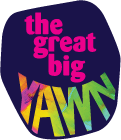Employee Exhaustion: A study by Telus Health reported that 44% of UK workers feel mentally or physically exhausted at the end of their working day, with excessive workloads identified as the primary cause. Employee Benefits Online 12 June 2024
- Boreout Syndrome: Distinct from burnout, “boreout” results from a lack of meaningful work, leading to disengagement and boredom. Experts link this phenomenon to the broader “Great Disengagement” trend, where employees emotionally detach from their duties, potentially leading to “quiet quitting.” New York Post 3 April 2025
- Burnout Prevalence: Research indicates that a significant portion of the UK workforce has experienced burnout in recent years. For instance, a study by LumApps found that 88% of UK employees reported some level of burnout over a two-year period, with one-third experiencing frequent physical and mental exhaustion due to workplace pressures. London Daily News 1st Sept 2022
- Impact of Social Media on Boredom: An essay collection titled “On Boredom” suggests that modern social media platforms have eradicated downtime, paradoxically exacerbating feelings of boredom. This chronic boredom is linked to irrational and dangerous behaviors, such as joining online hate mobs and rioting. The Guardian Sat 24 August 2024
These findings underscore the importance of addressing workplace boredom and exhaustion to improve employee well-being and engagement. Strategies may include providing meaningful work, ensuring manageable workloads, and fostering a supportive work environment.
In response to the rising tide of workplace exhaustion, apathy, and disengagement, The Great Big Yawn proposes a transformative solution: training staff to become Yawnologists. This imaginative and practical training programme blends education, creativity, and wellbeing, equipping individuals with the tools to recognise and respond to yawning not as a problem, but as a powerful signal. At its core, the yawn is a visible, embodied message—a natural cue that boredom, apathy, or a change of state is setting in. Rather than ignoring it or letting it fester into burnout or disconnection, Yawnologists are trained to spot it, honour it, and use it as a pivot point. With humour and insight, they guide teams to harness the energy of the yawn as a creative force—resetting focus, injecting playfulness, and transitioning smoothly into the next task. It’s about nipping disengagement in the bud and turning it into a spark for action, imagination, and renewed presence in the workplace.
Integrating play into the workplace has been shown to yield significant benefits for both employees and businesses. Studies indicate that happy employees are 12% more productive, leading to enhanced efficiency and output. (Global Standard news).
💼 Innocent Drinks (UK)
Known for its quirky brand voice, Innocent Drinks applies the same playful spirit internally. Their offices include swing chairs, themed meeting rooms, and creative wellbeing initiatives. This relaxed, fun environment has helped maintain a highly engaged workforce and a strong, innovative brand.
Furthermore, organizations with engaged employees have experienced up to 43% greater productivity. Incorporating fun activities at work has also been linked to reduced absenteeism; 62% of employees who participated in workplace fun reported no sick days in the past three months.
🧩 LEGO Group
No surprise here—LEGO takes play seriously, not just in their products but in their workplace. They embed playful thinking into innovation processes and team-building, encouraging employees to use LEGO bricks to prototype ideas. Their “Serious Play” methodology has even been adopted globally for corporate strategy and development.
Is it time to get to the very core of boredom, apathy and exhaustion in your business and nip it in the yawn, literally?
If you’d like more information then get in touch today to book a call or book you and your colleagues on the next course.

